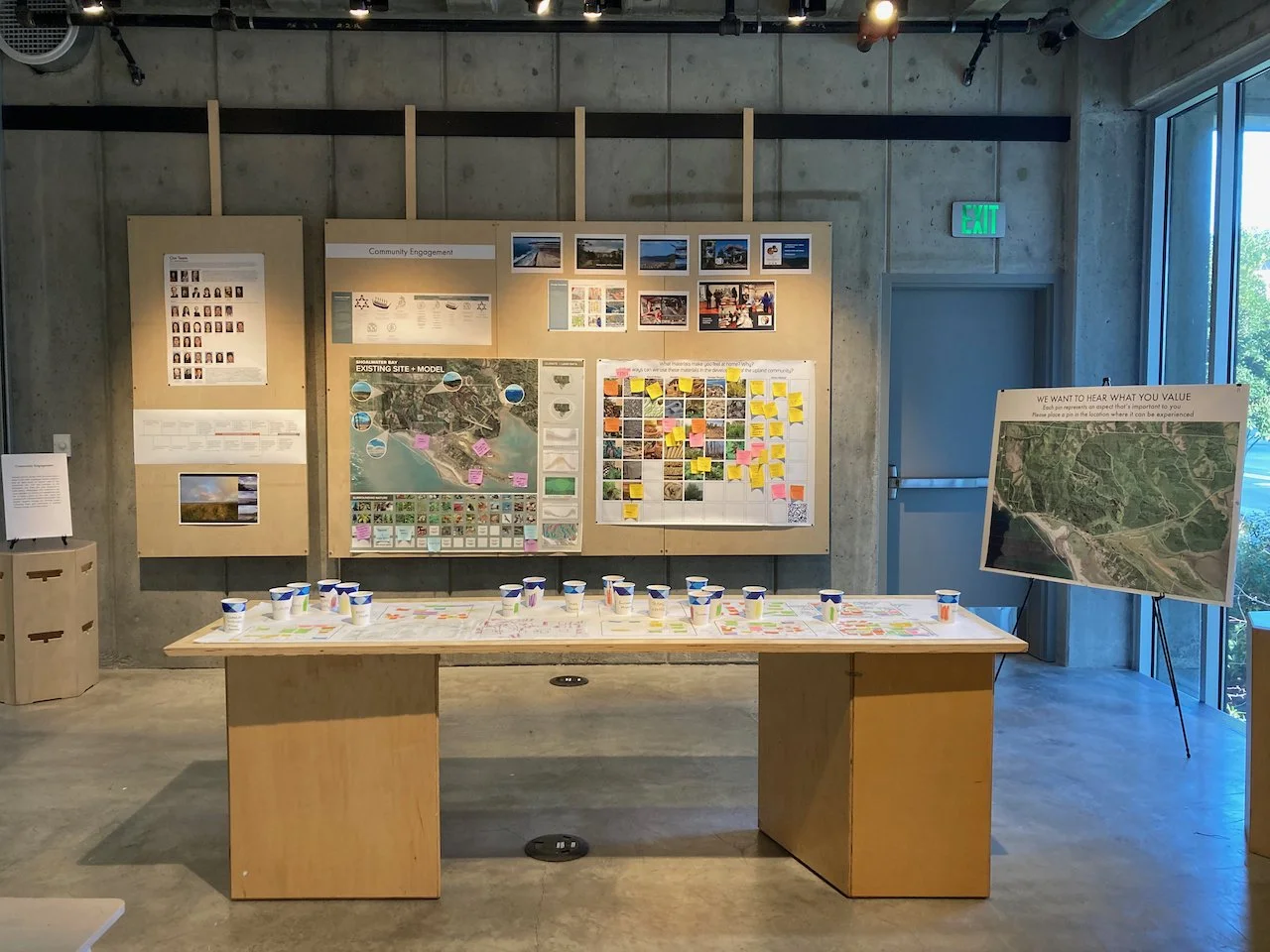NEWS
The exhibit showcased an array of culturally appropriate and technologically innovative strategies that advance the Tribe’s existing planning priorities –e.g., resilient green buildings, green infrastructure, edible trails, food sovereignty, and health & well-being -to reassert long-term cultural identification with place.
This one minute video describes Shoalwater Bay Indian Reservation climate change and social justice project.
“As climate change gets worse, tribes like Shoalwater Bay are being squeezed between existential threats and brutal financial arithmetic. Consigned to marginal land more than a century ago by the United States government, some tribes are now trying to relocate to areas better protected from extreme weather yet lack the money to pay for that move.”
“The proposed community-based participatory action research project, “Centering Place and Community to Address Climate Change and Social Justice,” is a collaborative research, planning and design initiative that will enable a UW research team to work with the Shoalwater Bay Indian Tribe to explore sustainable and culturally relevant strategies for an upland expansion in response to climate change-driven sea level rise and other threats to their coastal ecosystems and community.”
PHnw is back for our first in person gathering since 2019!
This one day "micro" conference is laser focused
on the rapidly growing panelization market.
'“Can we build an online world that doesn’t destroy the real one? In this episode, reporter Audrey Grey speaks to Drs. Julie Kriegh and Dr. Hyun Woo “Chris” Lee, UW College of Built Environments colleagues, who were part of a team imagining a completely different future for data centers.'‘
"Drs. Julie Kriegh (lead instructor) and Chris Lee with Jan Whittington, UW College of Built Environments colleagues, spent 2020 ... leading a multidisciplinary studio that challenged architecture students from UW, the University of Arizona, and the University of Pennsylvania to reimagine the modern data center..."
“Last year, Google teamed up with an interdisciplinary group of students from the University of Washington, the University of Arizona, and the University of Pennsylvania to design more sustainable data centers. The yearlong exploration, supported with funding from Google and expert input from Microsoft, resulted in proposed data centers that use 100% renewable energy.”
In 2020, the faculty and students at the University of Washington (UW) conceived of a year-long joint study to be conducted in partnership with Google data center experts and two fellow academic institutions: the University of Pennsylvania (UPenn), and University of Arizona (UA). Each institution, set of instructors, and students focused on a different aspect of data center design, contributing to the body of knowledge on the topic presented herein – specifically, sustainability, climate analysis, and materials performance.
Today the Carbon Leadership Forum released a ground-breaking report on the potential for meaningful climate impact through materials that serve as carbon sinks. Such materials have a clear advantage, with the potential to reverse the climate profile of buildings from a leading driver of carbon emissions to carbon reservoirs that can help reverse it.










